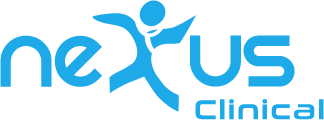
Navigating the landscape of Electronic Health Record (EHR) solution vendors can be a daunting task. With nearly 88% of U.S. office-based physicians adopting any form of EHR as of 2021, and an anticipated market growth to reach more than US$15.3 Billion by the end of 2033, it’s clear that EHR solutions are becoming a crucial part of healthcare management.
However, with numerous vendors offering seemingly similar services, it can be challenging to identify the right EHR solution for your healthcare practice.
In this blog, we will provide you with practical tips for successfully navigating EHR solution vendors. We’ll guide you through the process of understanding your needs, evaluating different vendors, and making the best choice for your healthcare practice.
Here are some tips on how to navigate the EHR solution landscape:
1. Know what you need
Before you start searching, think through your organization’s unique needs and make sure the vendors you consider are able to meet them. Do you need an EHR that integrates with other applications? Is it important for the vendor to have a long track record in healthcare? Are scalability and flexibility necessary? Knowing what you want from your EMR solution will help narrow down the field.
2. Research vendor ratings
Understand the track record of the vendors you’re considering by reading user reviews or talking to other healthcare organizations who have used their products. This will help you determine if they are reliable and have a good reputation in the industry.
3. Consider software features
Does the vendor software offer features that will help make your clinic’s workflows more efficient? Do they provide customer support? Look for features and capabilities that will streamline work processes and reduce data entry time.
4. Customer support
Find out what type of customer support the vendor offers and how quickly they respond to inquiries. Make sure the vendor can be contacted with relative ease.
5. Patient Experience
Make sure the EHR solution you choose will provide a great patient experience. Look for features that make it easy to access and manage patient data, complete intake documents/ forms, schedule appointments, and make payments quickly and securely.
6. Ease of Use
Be sure the software is intuitive and easy to use. Ensure that users can quickly learn how to navigate the system and find information easily. Not just the EHR interface, the patient portal should be easy to access with a simple interface. So that patients can complete intake documentation, complete forms, and schedule appointments without effort.
7. Cost
Determine what the total cost of ownership will be, including services, fees, and upgrades. Make sure the EHR solution fits within your budget. By considering these factors when selecting an EHR solution vendor, you can ensure that you are getting the best value for your organization.
8. Implementation Period:
Determine how long it will take to fully implement the EHR solution and have your staff trained in its use. This is important for understanding how quickly you can start utilizing the system and realizing the benefits of using an EHR solution.
9. Support with Data Import:
Ensure the vendor can support you with importing existing patient data into your new EHR solution. This will make the transition process easier and help minimize disruptions in workflow.
10. Get demos
Schedule a demo of any EHR solution vendors you’re considering. When you see the product in action, make sure it meets your organization’s needs and integrates with any other systems that will be used.
Conclusion
The right EHR solution vendor can make a huge difference in improving your workflow, patient experience, and overall success of your clinic. Use these tips as a guide for finding the perfect fit for your healthcare organization.
With an understanding of what’s important to your organization, you can make an informed decision on the right EHR solution for you. Nexus EHR is an ONC-certified EHR Software that can be customized for your practice needs.






